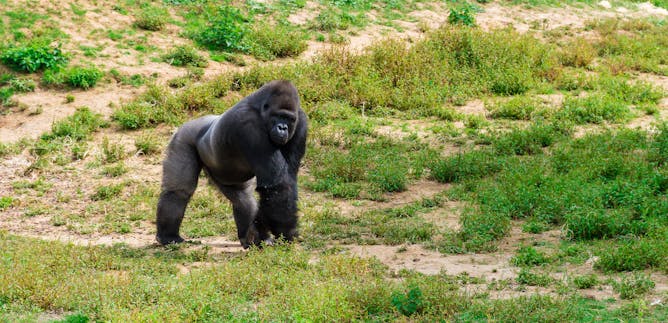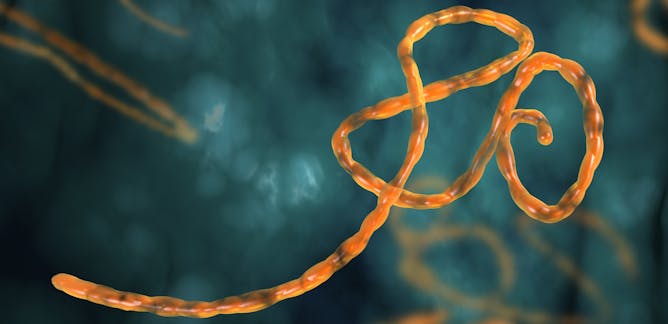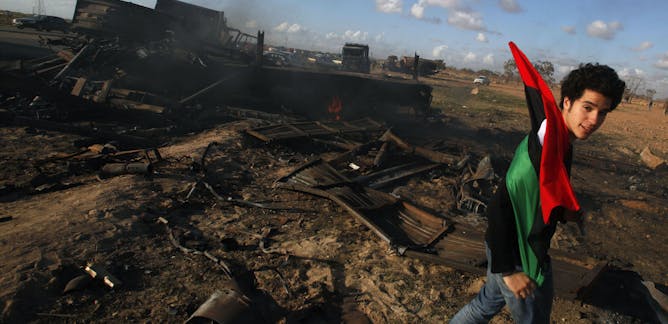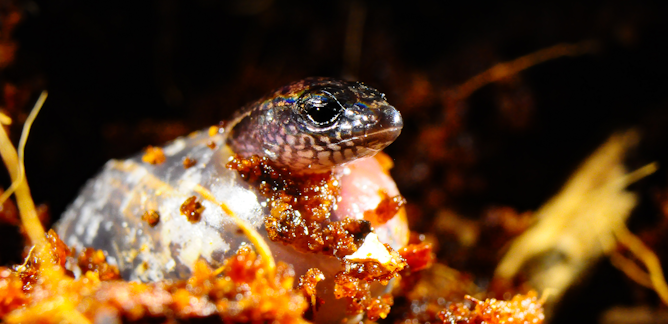|
Twelve years ago, the Sino Congolaise des Mines (Sicomines) was billed as "the deal of the century". It gave Chinese partners mining rights to cobalt and copper in the DRC; in exchange, China agreed to build much-needed infrastructure projects such as urban roads, highways and hospitals. But the deal, write Andoni Maiza Larrarte and Gloria Claudio-Quiroga, has not lived up to expectations – and its failings hold lessons for other African countries doing business with China.
There are only about 1000 mountain gorillas left in the wild, which is why conservationists are so worried by the behaviour of the population living in Rwanda's Volcanoes National Park. These gorillas are leaving protected areas to raid nearby farms' crops of plants that are rich in sodium. Cyril Grueter explains why this is so dangerous.
Social media and digital technologies can be used to rapidly spread fake news. In today's episode of Pasha, Professor Tawana Kupe explains the role that well-communicated science can play in fighting fake news on any platform.
|

Copper was part of the deal between the DRC and the Chinese company Sicomines.
Shutterstock
Andoni Maiza Larrarte, Universidad del País Vasco / Euskal Herriko Unibertsitatea; Gloria Claudio-Quiroga, Universidad Francisco de Vitoria
The deal between the DRC and the Chinese company Sicomines didn't take into account how the Congolese people would benefit.
|

The gorilla population in Rwanda remains fragile.
Shutterstock
Cyril Grueter, University of Western Australia
In Rwanda gorillas have been leaving protected areas to raid sodium rich crops.
|
Environment + Energy
|

Gina Ziervogel, University of Cape Town
Cities need to pay attention to how extreme weather events effect their resources.
| |

Bernard Coetzee, University of the Witwatersrand
There's mounting evidence that increased lighting has a range of negative effects.
|
|
|
Podcasts
|

Ozayr Patel, The Conversation
To fight fake news, it's crucial that science is spread in an understandable way.
| |

Ozayr Patel, The Conversation
In the era of fake news, science can play a crucial role.
|
|
|
From our international editions
|

Pramila Rijal, University of Oxford; Alain Townsend, University of Oxford
The Ebola virus claimed 11,000 lives in 2014. Today, scientists may have cured the disease in guinea pigs by using antibodies.
| |

Eleonora Mattiacci, Amherst College
When the 2011 Libyan civil war erupted, Twitter became a major instrument to air the rebels’ account of the conflict and present themselves internationally as a viable alternative to Moammar Gadhafi.
|

Indrajit Roy, University of York
India heads to the polls in April and May for the world's biggest democratic exercise. Why the world should be watching this election.
| |

Melanie Laird, University of Otago; Camilla Whittington, University of Sydney
The evolution of live birth from egg-laying is no mean feat. Now new research reports on the first known example where both eggs and a live birth come from the same lizard pregnancy.
|
|
|